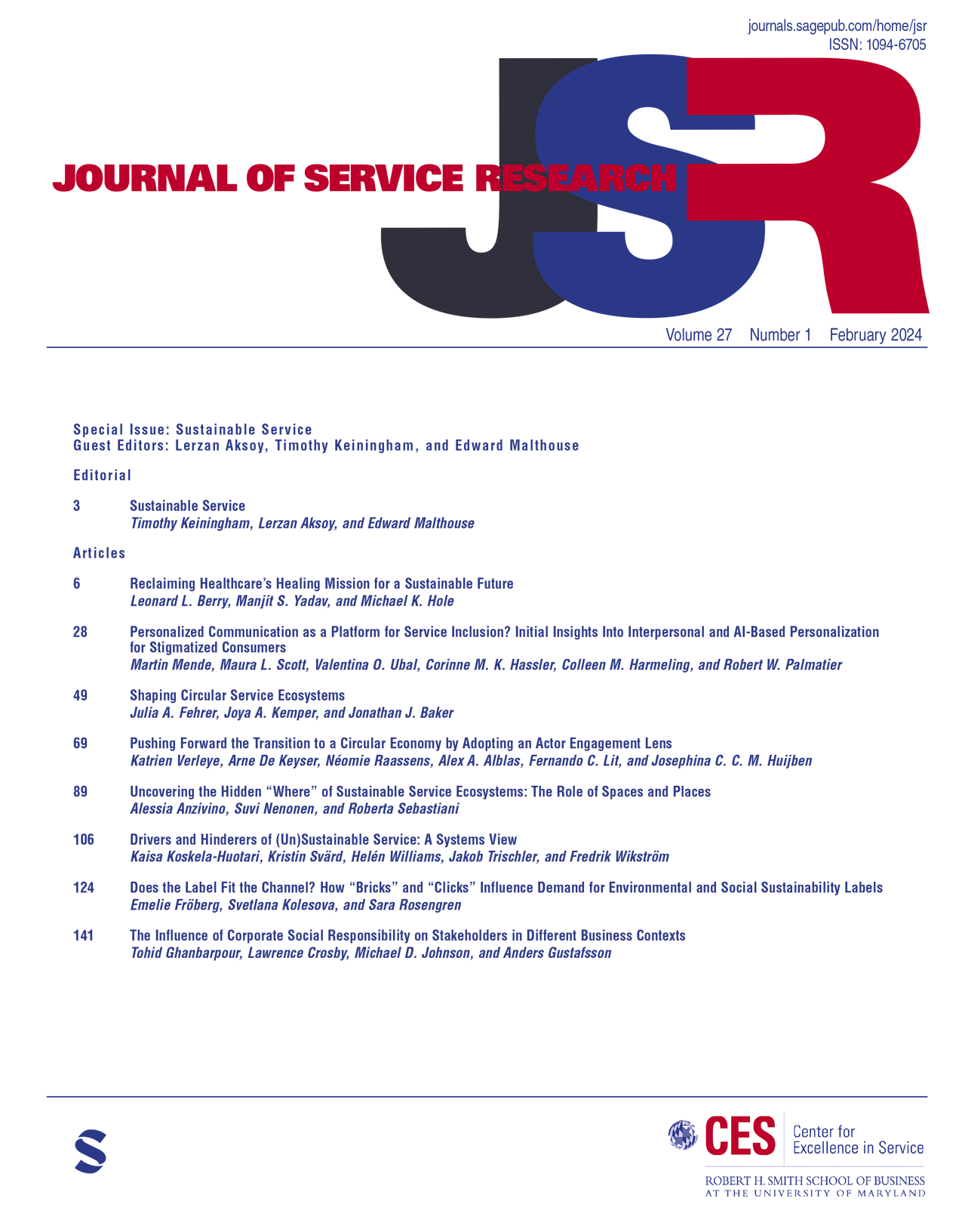Customer Engagement in Utilitarian vs. Hedonic Service Contexts
IF 8.6
2区 管理学
Q1 BUSINESS
引用次数: 0
Abstract
In the last decade, customer engagement has become a key concept in service research. While the customer engagement literature has gained significant traction and is maturing, studies have predominantly focused on hedonic consumption contexts, such as social media platforms or brand communities. We argue that hedonic and utilitarian service services are fundamentally different. Therefore, existing research knowledge on customer engagement does not necessarily hold in more utilitarian contexts, such as healthcare or financial services, where greater customer engagement could increase societal and individual well-being. By synthesizing insights from the customer engagement literature and the literature on hedonic versus utilitarian consumption, we identify assumptions in customer engagement research that need revising. We extract five fundamental features that differ between hedonic and utilitarian services (affectivity, motivational focus, perception of necessity, role of risk, and relational focus). Based on these features, we derive propositions that describe the role of context for the drivers and outcomes of customer engagement, as well as their interrelationships, and provide guidelines for future research to augment the scope of customer engagement research. As its main contribution, this article problematizes the current premises of customer engagement research and demonstrates that assumptions held about customer engagement are not necessarily generalizable across contexts.功利性与享乐性服务背景下的客户参与
近十年来,顾客参与已成为服务研究中的一个重要概念。虽然顾客参与的研究已经取得了重大进展并日趋成熟,但研究主要集中在享乐型消费环境上,如社交媒体平台或品牌社区。我们认为,享乐型服务和功利型服务有着本质区别。因此,关于顾客参与的现有研究知识并不一定适用于医疗保健或金融服务等功利性更强的情境,而在这些情境中,提高顾客参与度可以提高社会和个人福祉。通过综合顾客参与文献和享乐型消费与功利型消费文献中的观点,我们发现了顾客参与研究中需要修正的假设。我们提取了享乐型服务和功利型服务之间的五个基本特征(情感、动机、必要性感知、风险作用和关系)。基于这些特征,我们提出了一些命题,描述了情境对顾客参与的驱动因素和结果的作用,以及它们之间的相互关系,并为未来的研究提供了指导,以扩大顾客参与研究的范围。作为本文的主要贡献,它对当前顾客参与研究的前提提出了质疑,并证明了关于顾客参与的假设并不一定可以在不同背景下通用。
本文章由计算机程序翻译,如有差异,请以英文原文为准。
求助全文
约1分钟内获得全文
求助全文
来源期刊

Journal of Service Research
BUSINESS-
CiteScore
20.30
自引率
6.50%
发文量
28
期刊介绍:
The Journal of Service Research (JSR) is recognized as the foremost service research journal globally. It is an indispensable resource for staying updated on the latest advancements in service research. With its accessible and applicable approach, JSR equips readers with the essential knowledge and strategies needed to navigate an increasingly service-oriented economy. Brimming with contributions from esteemed service professionals and scholars, JSR presents a wealth of articles that offer invaluable insights from academia and industry alike.
 求助内容:
求助内容: 应助结果提醒方式:
应助结果提醒方式:


